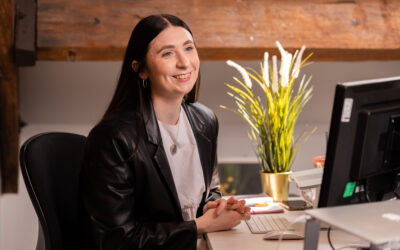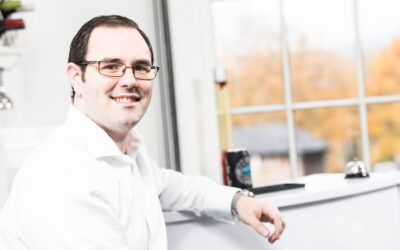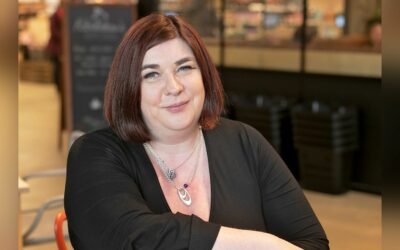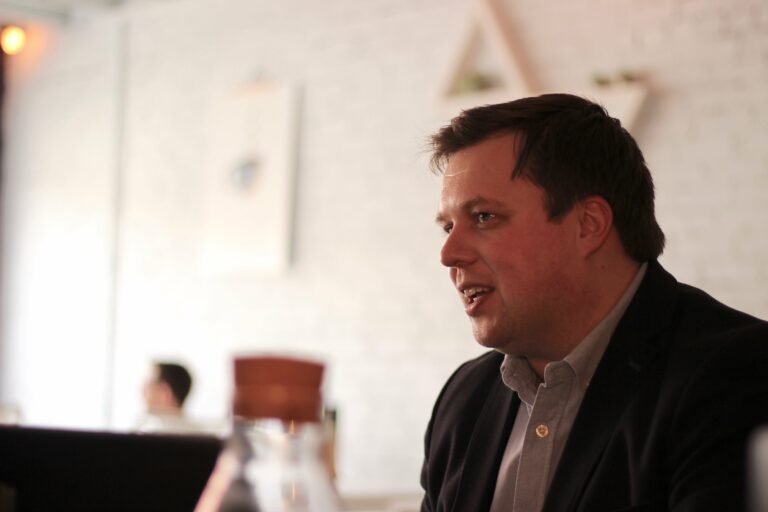Bobbie Hough is Managing Director at Hough Bellis Communications.
The Cheshire-based agency was launched by Hough with founder Catherine Bellis in 2016.
Hough Bellis Communications, which recently appointed a trio of hires, specialises in supporting organisations with a social purpose, working across industries including housing, local government, energy and the third sector.
Hough shared all the lessons he has learnt…
Which single daily habit or practice could you not do without?
I walk my son to school every day. It helps keeps things in perspective and is a good way to clear my head before I get into the working day. I also learn more from him in 20 minutes walking to reception class than I do from any business consultant.
What’s been your luckiest break?
We’ve hired some amazing people who’ve either been with us from the start or have helped transform the company in recent times. They have really bought into what we’re trying to do at Hough Bellis and set us up for an exciting few years ahead. Most of our best hires have comes from a fortunate stroke of serendipity or us ‘going with our gut.’
What’s your best failure?
It’s a personal one. I’d been diagnosed with arthritis as a teenager and in my 20s it took a grip of me, both physically and mentally. I struggled with pain and failing mobility. My work suffered, and I was in a pretty bad place. My career could have crashed before it even started. I was lucky and with the help of the NHS I got better. But the experience gave me a fresh perspective on work and a different take on risk and purpose.
I became much clearer on the kind of people, organisations and ideas I wanted to work with – and that is reflected in the kind of clients Hough Bellis works with. If you live life like you’ve been given a second go, you tend to make different decisions.
What is the best investment you’ve ever made, either financial or time?
Our best financial investment would be providing every member of our team with an external mentor who fits with their personal and professional ambitions. It has accelerated people’s personal development and is a signal to staff about the scale of our ambitions and commitment to them. But it’s often the little touches that have the biggest impact.
Taking time to travel to Scotland or London for a meeting with a team member that you could easily do over Teams or Zoom; dropping in on staff with some nice coffee, or flowers or a few beers just to remind them they’re valued; or making sure you’re alive to the fact that people have other things going on in their lives beyond work and taking time to talk to them about that. That’s a good use of time.
Which book would you recommend others to read and why?
Poverty Safari by Darren McGarvey. It highlights the importance of involving people in decisions about their lives. Too often we do things to people and not with them. It also lays out the dangers of people trying to ‘fix’ big social problems without really understanding them. Thinking fast and slow by Daniel Kahneman has also had a big impact on our work.
What one piece of advice would you give your 21-year-old self?
Worry less. I spent a lot of time being angry about social issues I saw as unjust. I’d tell myself to stop whittling and go and do something about them. Also, look after your knees – 38-year-old you will appreciate it!
Who or what has had the single biggest influence on your working life?
I spent a lot of time in the early part of my career working for organisations I didn’t share any values with. It helped me figure out that I was much happier working with people who were committed to social change – and that we really undervalue the importance of enjoying what we do every day. In terms of people, Tony Ingham is the boss I’ve most enjoyed working for.
Tell us something about you that would surprise people.
I have an alter ego. I once had a job writing horoscopes and an agony aunt column for a magazine in Australia. So for a brief period of time I went by the name of Crystal Balls.
How will the COVID crisis change work for the better?
I’ve always been a champion of flexible working. As someone who lives with a long-term health condition, I’d seen how the traditional 9-5 locked people out of careers and the opportunity to progress.
When we set up Hough Bellis in 2016, we wanted to let people work where they wanted, when they wanted and how they wanted. The idea was that having a health condition, or being a lone parent, or being a carer for a family member shouldn’t be a barrier to getting the job you wanted. It was pretty radical at the time, and plenty of people were quick to point out the risks in our approach. In the post pandemic world it seems pretty normal. I think it will unlock new and hidden talent in all parts of society.
What does success look like to you?
Working with organisations on projects that improve people’s lives. We’re at our best developing national campaigns that bring people together around serious social issues. I also want to see our team developing and eventually taking over the running of the business so they can fulfil their own personal ambitions.











